Every music blog must have an end-of-year list. 2014 has been such a great year that I could not whittle the list down to fewer than 25 albums without excluding something that deserved to be honoured.
One obvious caveat; this is the best-of list from the albums I’ve actually heard, taken from those I’ve either shelled out money for or heard as review promos. There are naturally going to me many great records excludes from this list simply because I’ve not had the chance to hear them.
The top ten records will be covered in later posts, but we’ll start with No 25 up to 11. Except it’s next to impossible to rank them all in order, so I’ll list them alphabetically instead. The first batch are A to E.
Alestorm – Sunset on the Golden Age
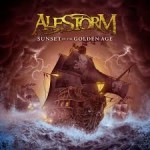 “Scottish Pirate Metal” doesn’t seem like an idea strong enough to last for four albums without the concept wearing thin, but Alestorm seem far from reaching the point of diminishing returns. Like their previous albums, it’s filled with tales of nautical adventure and booze set to music with a strong folk-metal flavour, though “Wooden Leg” is close to punk. It’s all entertaining stuff that doesn’t take itself remotely seriously, which is precisely what metal should be.
“Scottish Pirate Metal” doesn’t seem like an idea strong enough to last for four albums without the concept wearing thin, but Alestorm seem far from reaching the point of diminishing returns. Like their previous albums, it’s filled with tales of nautical adventure and booze set to music with a strong folk-metal flavour, though “Wooden Leg” is close to punk. It’s all entertaining stuff that doesn’t take itself remotely seriously, which is precisely what metal should be.
Anathema – Distant Satellites
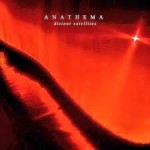 Aside from the occasional dance/electronica touches Anathema continue in a similar vein to last year’s “Weather Systems”. Their emotional widescreen music combines a big sound with a minimalist approach to songwriting, using the power of repetition to create something that’s often more than the sum or it’s parts. The great mystery is why mainstream crossover recognition continues to elude them and they’re still relatively unknown outside of the prog scene.
Aside from the occasional dance/electronica touches Anathema continue in a similar vein to last year’s “Weather Systems”. Their emotional widescreen music combines a big sound with a minimalist approach to songwriting, using the power of repetition to create something that’s often more than the sum or it’s parts. The great mystery is why mainstream crossover recognition continues to elude them and they’re still relatively unknown outside of the prog scene.
Asia – Gravitas
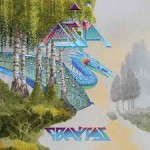 Not many people would have expected a 1980s supergroup made up from 70s prog musicians to still be making albums in 2014. They’re now down to a trio of original members plus young guitarist Sam Coulson, not even born when the band first started. This is really John Wetton’s album; he’s on superb form vocally, with big soaring melodies throughout. It’s a far better album than Yes’ lacklustre effort.
Not many people would have expected a 1980s supergroup made up from 70s prog musicians to still be making albums in 2014. They’re now down to a trio of original members plus young guitarist Sam Coulson, not even born when the band first started. This is really John Wetton’s album; he’s on superb form vocally, with big soaring melodies throughout. It’s a far better album than Yes’ lacklustre effort.
Behemoth – The Satanist
 The Polish black metal band recorded this album just after mainman Nergal was given the all-clear in his battle against cancer. The resulting record is a heavy, intense and deeply spiritual work, which makes Satanism sound like an actual religion. A vastly better album than anything Venom could have imagined, let alone made.
The Polish black metal band recorded this album just after mainman Nergal was given the all-clear in his battle against cancer. The resulting record is a heavy, intense and deeply spiritual work, which makes Satanism sound like an actual religion. A vastly better album than anything Venom could have imagined, let alone made.
Bigelf – Into The Maelstrom
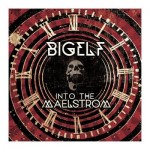 An album where the title is a perfect description of how the music sounds. Bigelf combine the melodic ear of The Beatles, the hand of doom of early Black Sabbath, the theatricality of The Crazy World of Arthur Brown, the musical ambition of 70s King Crimson, and the lack of inhibitions of Queen. This record captures the intensity of their live experience in a way their previous albums never quite managed.
An album where the title is a perfect description of how the music sounds. Bigelf combine the melodic ear of The Beatles, the hand of doom of early Black Sabbath, the theatricality of The Crazy World of Arthur Brown, the musical ambition of 70s King Crimson, and the lack of inhibitions of Queen. This record captures the intensity of their live experience in a way their previous albums never quite managed.
Curved Air – North Star
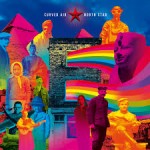 Curved Air reformed a few years back and have been playing the festival circuit for a while, but North Star is their first studio recording since the 1970s. With their quirky but fluid jazz-rock they’ve picked up exactly where they left off decades before, and Sonja Kristina is still on superb form vocally. The only thing that lets it down are some unnecessary covers, though they do demonstrate that they’re better songwriters than Snow Patrol.
Curved Air reformed a few years back and have been playing the festival circuit for a while, but North Star is their first studio recording since the 1970s. With their quirky but fluid jazz-rock they’ve picked up exactly where they left off decades before, and Sonja Kristina is still on superb form vocally. The only thing that lets it down are some unnecessary covers, though they do demonstrate that they’re better songwriters than Snow Patrol.
Elbow – The Takeoff and Landing of Everything
 Elbow are one of those mainstream rock bands that owe a huge debt to 70s progressive rock, which is obvious if you listen beyond their hits. Peter Gabriel is clearly an influence on Guy Garvey’s vocals and composition, and Elbow sound like the band Genesis might have become if Hackett had left but Gabriel had stayed. Even though it might have benefited from a solo or two in the right places, it’s still a rich and ambitious record with a great amount of emotional depth.
Elbow are one of those mainstream rock bands that owe a huge debt to 70s progressive rock, which is obvious if you listen beyond their hits. Peter Gabriel is clearly an influence on Guy Garvey’s vocals and composition, and Elbow sound like the band Genesis might have become if Hackett had left but Gabriel had stayed. Even though it might have benefited from a solo or two in the right places, it’s still a rich and ambitious record with a great amount of emotional depth.
Empty Yard Experiment – Kallisti
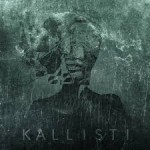 EYE are a multinational prog-metal band based in Dubai, with members from the Middle East, India and Eastern Europe, and this impressive work with shades of Anathema, Opeth, Porcupine Tree and Godspeed You Black Emperor is quite remarkable for a début with its mature composition and strong use of dynamics.
EYE are a multinational prog-metal band based in Dubai, with members from the Middle East, India and Eastern Europe, and this impressive work with shades of Anathema, Opeth, Porcupine Tree and Godspeed You Black Emperor is quite remarkable for a début with its mature composition and strong use of dynamics.
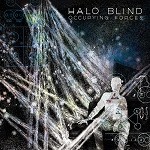 Halo Blind is the project that used to be called Parade, led by York-based singer-songwriter, multi-instrumentalist and producer Chris Johnson, currently part of Mostly Autumn. The long-awaited follow-up to 2009′s The Fabric is a little less eclectically-varied than it’s predecessor, but hangs together far more strongly as a coherent album. The blend of indie-rock guitars and progressive rock textures combined with strong songwriting ought to have a wide crossover appeal.
Halo Blind is the project that used to be called Parade, led by York-based singer-songwriter, multi-instrumentalist and producer Chris Johnson, currently part of Mostly Autumn. The long-awaited follow-up to 2009′s The Fabric is a little less eclectically-varied than it’s predecessor, but hangs together far more strongly as a coherent album. The blend of indie-rock guitars and progressive rock textures combined with strong songwriting ought to have a wide crossover appeal.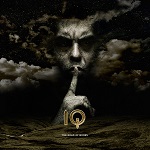 The neo-prog veterans have never been prolific, but never disappoint. This double album sees them not afraid to experiment, with an abrasive industrial-metal edge alongside the more traditional neo-prog sounds. There is still plenty of what ought to be expected from any IQ album; lengthy kaleidoscopic songs, dark and melodramatic vocals and climactic guitar and keyboard solos.
The neo-prog veterans have never been prolific, but never disappoint. This double album sees them not afraid to experiment, with an abrasive industrial-metal edge alongside the more traditional neo-prog sounds. There is still plenty of what ought to be expected from any IQ album; lengthy kaleidoscopic songs, dark and melodramatic vocals and climactic guitar and keyboard solos.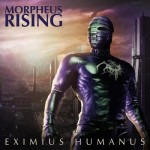 The York twin-guitar rockers raise their game significantly with their second album. It’s an old-school hard rock album recalling the early days of Judas Priest and Iron Maiden, with a focus on songwriting and melody. Si Wright comes into his own as a lead singer with material written to take full advantage of his vocal range.
The York twin-guitar rockers raise their game significantly with their second album. It’s an old-school hard rock album recalling the early days of Judas Priest and Iron Maiden, with a focus on songwriting and melody. Si Wright comes into his own as a lead singer with material written to take full advantage of his vocal range. The veteran former Led Zeppelin frontman returns with his strongest record for many years. It’s a mix of English rock and folk with African and Middle Eastern sounds, and even the occasional blast of hard rock guitar, but there’s a fire to it that’s been missing from his last few records. It’s still a long way from the swaggering blues-rock of his early career, but like much of his recent output it’s music that suits an artist in his 60s rather than his 20s.
The veteran former Led Zeppelin frontman returns with his strongest record for many years. It’s a mix of English rock and folk with African and Middle Eastern sounds, and even the occasional blast of hard rock guitar, but there’s a fire to it that’s been missing from his last few records. It’s still a long way from the swaggering blues-rock of his early career, but like much of his recent output it’s music that suits an artist in his 60s rather than his 20s.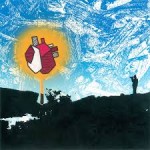 It’s jazz, Jim, but not as we know it. Twin saxophones meet electronic soundscapes, with shades of Miles Davis meets Pink Floyd. One moment it’s melodic and atmospheric, the next it’s squawking cacophony. It can be a challenging listen at times; this is a record than imports elements of rock into jazz, but takes things in an altogether different direction from jazz-fusion.
It’s jazz, Jim, but not as we know it. Twin saxophones meet electronic soundscapes, with shades of Miles Davis meets Pink Floyd. One moment it’s melodic and atmospheric, the next it’s squawking cacophony. It can be a challenging listen at times; this is a record than imports elements of rock into jazz, but takes things in an altogether different direction from jazz-fusion.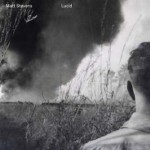 Having taken his acoustic looping guitar thing as far as could go, Matt has made something far more eclectic, combining his loves of post-punk, progressive rock and extreme metal. While there are some delicate acoustic numbers, much of the album is electric, with a full band and and interesting array of guest performers. Proof that you can make an all-instrumental guitar album without it becoming a vehicle for endless soloing.
Having taken his acoustic looping guitar thing as far as could go, Matt has made something far more eclectic, combining his loves of post-punk, progressive rock and extreme metal. While there are some delicate acoustic numbers, much of the album is electric, with a full band and and interesting array of guest performers. Proof that you can make an all-instrumental guitar album without it becoming a vehicle for endless soloing. The new project from former Breathing Space and Stolen Earth bassist Paul Teasdale is a very interesting blend of progressive rock atmospherics and Britpop-style songwriting. There are strong guest vocal performances by Aleksandra Koziol and Joanne Wallis, but Paul handles the majority of the lead vocals himself, and the soaring melodies prove him to be a fine vocalist as well as a songwriter.
The new project from former Breathing Space and Stolen Earth bassist Paul Teasdale is a very interesting blend of progressive rock atmospherics and Britpop-style songwriting. There are strong guest vocal performances by Aleksandra Koziol and Joanne Wallis, but Paul handles the majority of the lead vocals himself, and the soaring melodies prove him to be a fine vocalist as well as a songwriter. Yet another York-based band (Is there something in the water?), Cloud Atlas is the band put together by Heidi Widdop following the dissolution of Stolen Earth. Their impressive début album is big widescreen rock with an epic scope, with Heidi’s distinctive bluesy vocals setting them apart from many of their obvious peers. But this album’s sound is as much about Martin Ledger’s soaring melodic lead guitar, with strong echoes of Marillion’s Steve Rothery.
Yet another York-based band (Is there something in the water?), Cloud Atlas is the band put together by Heidi Widdop following the dissolution of Stolen Earth. Their impressive début album is big widescreen rock with an epic scope, with Heidi’s distinctive bluesy vocals setting them apart from many of their obvious peers. But this album’s sound is as much about Martin Ledger’s soaring melodic lead guitar, with strong echoes of Marillion’s Steve Rothery.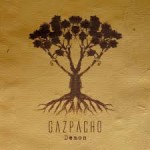 Norway’s Gazpacho have come up with one of the darkest and most sinister-sounding records of 2014. It’s what Talk Talk’s Spirit of Eden might have sounded like if Mark Hollis had spent a lot of time listening to Black Sabbath. Sinister violin-led pastoral soundscapes with are intercut with bursts of hard rock, motifs recur across the album, and there’s even an irruption of accordion-led central European folk at one point. An ambitious album which is by no means an easy listen, but one where you can keep finding new layers after many listens.
Norway’s Gazpacho have come up with one of the darkest and most sinister-sounding records of 2014. It’s what Talk Talk’s Spirit of Eden might have sounded like if Mark Hollis had spent a lot of time listening to Black Sabbath. Sinister violin-led pastoral soundscapes with are intercut with bursts of hard rock, motifs recur across the album, and there’s even an irruption of accordion-led central European folk at one point. An ambitious album which is by no means an easy listen, but one where you can keep finding new layers after many listens.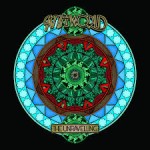 A major step forward for Kavus Torabi’s eight-piece band, and reflects their current live sound far more than any of their previous recordings. It’s a record that takes psychedelia, jazz, hard rock and all kinds of other things, and puts them in a blender to produce something that sounds quite unlike anyone else. Fans of the late, great Frank Zappa should find a lot to like about this record, as should anyone who thinks there should be more bassoons in rock.
A major step forward for Kavus Torabi’s eight-piece band, and reflects their current live sound far more than any of their previous recordings. It’s a record that takes psychedelia, jazz, hard rock and all kinds of other things, and puts them in a blender to produce something that sounds quite unlike anyone else. Fans of the late, great Frank Zappa should find a lot to like about this record, as should anyone who thinks there should be more bassoons in rock. Luna Rossa started out as a side-project from Panic Room emphasising the acoustic side of Anne-Marie Helder’s and Jon Edwards’ music, but seems to have taken on a life of it’s own. Their second album is a logical progression from the first; perhaps not quite as eclectic, but with a slightly clearer musical identity. Luna Rossa still defy easy genre pigeonholing, though the album does show occasional hints of artists as varied as Goldfrapp and Renaissance. There’s some very raw heart-on-sleeve emotion, with the music revolving around and complementing Anne-Marie’s always remarkable vocals.
Luna Rossa started out as a side-project from Panic Room emphasising the acoustic side of Anne-Marie Helder’s and Jon Edwards’ music, but seems to have taken on a life of it’s own. Their second album is a logical progression from the first; perhaps not quite as eclectic, but with a slightly clearer musical identity. Luna Rossa still defy easy genre pigeonholing, though the album does show occasional hints of artists as varied as Goldfrapp and Renaissance. There’s some very raw heart-on-sleeve emotion, with the music revolving around and complementing Anne-Marie’s always remarkable vocals. This Kickstarter-funded project is Steve Rothery’s first proper solo album in more than three decades as lead guitarist of Marillion. It’s an instrumental album with a band including Panic Room’s Yatim Halimi and Mr So and So’s Dave Foster, Rothery’s lyrical and emotional playing both soars and rocks, the numbers building in intensity from slow-burning beginnings. The whole thing shows just why Rothery is one of the best guitarists of his generation, one of the few players good enough to pull this sort of thing off without descending into self-indulgence.
This Kickstarter-funded project is Steve Rothery’s first proper solo album in more than three decades as lead guitarist of Marillion. It’s an instrumental album with a band including Panic Room’s Yatim Halimi and Mr So and So’s Dave Foster, Rothery’s lyrical and emotional playing both soars and rocks, the numbers building in intensity from slow-burning beginnings. The whole thing shows just why Rothery is one of the best guitarists of his generation, one of the few players good enough to pull this sort of thing off without descending into self-indulgence.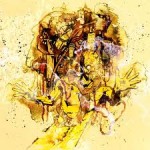
 Mikhael Akerfeld and his men will disappoint anyone still hoping 2011′s “Heritage” might have been a one-off, for Pale Communion is not a return to their death-metal roots. Instead it develops its predecessor’s contemporary take on classic and more obscure 70s sounds, and if anything it’s “Meddle” to Heritage’s “Atom Heart Mother”. There are no cookie monsters, but the record does retain all of Opeth’s mastery of dynamics, and its dark intensity shows there can be other forms of heaviness than bludgeoning riffs. The dense and atmospheric record has a similar mood to Gazpacho’s “Demon”; while the execution is quite different both have a mood that suggests shadowy things in Scandinavian forests.
Mikhael Akerfeld and his men will disappoint anyone still hoping 2011′s “Heritage” might have been a one-off, for Pale Communion is not a return to their death-metal roots. Instead it develops its predecessor’s contemporary take on classic and more obscure 70s sounds, and if anything it’s “Meddle” to Heritage’s “Atom Heart Mother”. There are no cookie monsters, but the record does retain all of Opeth’s mastery of dynamics, and its dark intensity shows there can be other forms of heaviness than bludgeoning riffs. The dense and atmospheric record has a similar mood to Gazpacho’s “Demon”; while the execution is quite different both have a mood that suggests shadowy things in Scandinavian forests.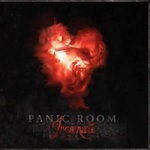 With a new guitarist in Adam O’Sullivan Panic Room’s fourth album feels like the start of a new chapter for the band, and shows that sometimes a change of lead guitarist can be as big a change as a new lead singer. It’s a step away from the rich wall of sound that characterised their last couple of albums in favour of a lighter, more pared-back feel, with a stronger emphasis on Anne-Marie Helder’s songwriting. O’Sullivan has quite a different style as a guitarist, with jazz and blues flourishes, though he demonstrates that he can still rock out when it’s needed. But it’s still unmistakably Panic Room, with that combination of rock, pop, jazz, folk and prog focussed on strong songwriting and Anne-Marie’s award-winning vocals.
With a new guitarist in Adam O’Sullivan Panic Room’s fourth album feels like the start of a new chapter for the band, and shows that sometimes a change of lead guitarist can be as big a change as a new lead singer. It’s a step away from the rich wall of sound that characterised their last couple of albums in favour of a lighter, more pared-back feel, with a stronger emphasis on Anne-Marie Helder’s songwriting. O’Sullivan has quite a different style as a guitarist, with jazz and blues flourishes, though he demonstrates that he can still rock out when it’s needed. But it’s still unmistakably Panic Room, with that combination of rock, pop, jazz, folk and prog focussed on strong songwriting and Anne-Marie’s award-winning vocals. The Pineapple Thief are one of those bands generally considered part of the progressive rock scene, but take a modern, streamlined approach to their music. Magnolia sees them combine many of the best elements of their previous three records to result in their most accessible album to date. There are touches of dance/electronica rhythms and of hard rock riffing, but the emphasis is on big soaring melodies. They’re another band who are worthy of mainstream crossover success.
The Pineapple Thief are one of those bands generally considered part of the progressive rock scene, but take a modern, streamlined approach to their music. Magnolia sees them combine many of the best elements of their previous three records to result in their most accessible album to date. There are touches of dance/electronica rhythms and of hard rock riffing, but the emphasis is on big soaring melodies. They’re another band who are worthy of mainstream crossover success.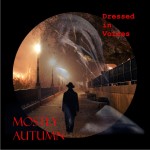 The last few Mostly Autumn albums have had their moments, and have been enjoyable works, but all of them fell frustratingly short of the records the band seemed capable of making. With “Dressed in Voices” the band have finally created the career-defining masterpiece they’ve always had in them. Lyrically it’s a dark concept album about life, death and the consequences of violence, and musically it’s a distillation of the best elements of their past three or four albums, with the band’s three songwriters all on the same page.
The last few Mostly Autumn albums have had their moments, and have been enjoyable works, but all of them fell frustratingly short of the records the band seemed capable of making. With “Dressed in Voices” the band have finally created the career-defining masterpiece they’ve always had in them. Lyrically it’s a dark concept album about life, death and the consequences of violence, and musically it’s a distillation of the best elements of their past three or four albums, with the band’s three songwriters all on the same page.